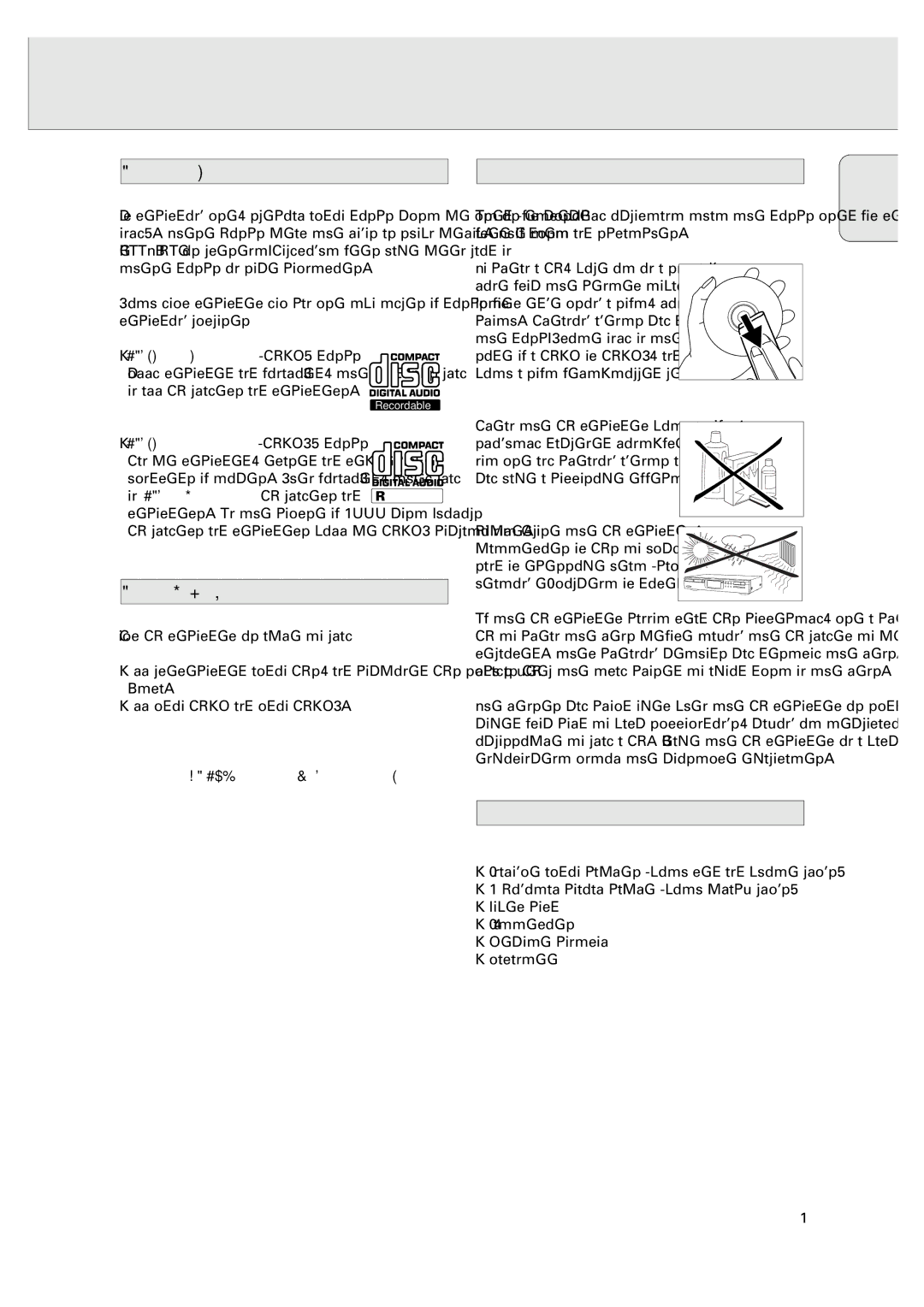
GENERAL INFORMATION
Discs for recording |
| Maintenance |
|
|
|
English
For recording use, special audio discs must be used (for music only). These Discs bear the logos as shown below. The text 'DIGITAL AUDIO' is present! Copyright fees have been paid on these discs in some countries.
With your recorder you can use two types of discs for recording purposes:
- CD-Audio Recordable (CD-R) discs:
Fully recorded and finalized, these discs play on all CD players and recorders.
| Recordable | |||
- |
|
|
|
|
Can be recorded, erased and |
|
|
|
|
hundreds of times. When finalized, they play |
|
|
|
|
|
|
|
| |
on | ReWritable | |||
recorders. In the course of 1999 most Philips |
|
|
|
|
CD players and recorders will be
Discs for playback
Your CD recorder is able to play:
-All prerecorded audio CDs, and combined CDs such as CD Extra.
-All Audio
Note:
It is extremely important that the discs used for recording are free of dust and scratches.
To clean a CD, wipe it in a straight line from the center towards the outer edge using a soft,
Clean the CD recorder with a soft, slightly dampened
Do not expose the CD recorder, batteries or CDs to humidity, rain, sand or excessive heat (caused by heating equipment or direct sunlight).
If the CD recorder cannot read CDs correctly, use a cleaning CD to clean the lens before taking the CD player to be repaired. Other cleaning methods may destroy the lens. Always keep the tray closed to avoid dust on the lens.
The lenses may cloud over when the CD recorder is suddenly moved from cold to warm surroundings, making it temporarily impossible to play a CD. Leave the CD recorder in a warm environment until the moisture evaporates.
Accessories
-2 Analogue audio cables (with red and white plugs)
-1 Digital coaxial cable (with black plugs)
-Power cord
-2 Batteries
-Remote control
-Guarantee
5
